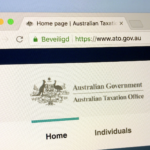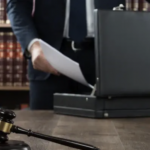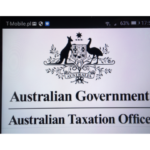‘Mastermind’ of Australia’s Biggest Tax Fraud Receives Lengthy Prison Sentence

Adam Cranston, who was found to be one of the ‘masterminds’ behind Australia’s biggest tax fraud, has been sentenced to 15 years behind bars.
Adam Cranston is the son of former deputy commissioner of the ATO, Michael Cranston. He appeared for the sentencing hearing in the New South Wales Supreme Court via video link from Silverwater prison.
In 2019, Michael Cranston was found not guilty of dishonestly obtaining information in his capacity as a senior public servant to benefit his son, as well as a charge of using his influence to improperly obtain a benefit for his son.
Australia’s largest tax fraud
However, Adam Cranston was found guilty earlier this year along with four others including his sister of criminal offences including conspiring to defraud the Commonwealth and conspiracy to deal with more than $1 million proceeds of crime.
The fraud, known as the Plutus Payroll tax fraud, involved using several apparently unrelated subcontracting companies to funnel money from Plutus Payroll, a legitimate company which was set up to manage payroll for businesses. The money was garnered by skimming PAYG (pay as you go) withholding tax and GST from money from clients.
Of $141 million collected in taxes, $105 million was misappropriated between March 2014 and May 2017, spent by the four on luxury cars and boats and real estate. After the long-running and complicated trial, it was reported that Adam Cranston personally benefited from the scheme between $6 and $7 million.
The subsidiary or ‘subcontracting’ companies were set up with ‘dummy directors’ – vulnerable people who were paid cash in exchange for their ID information and never had any idea what they were involved with.
Justice Anthony Payne found that Adam Cranston became “knowingly involved in the conspiracies from the outset – February 2014,”
A “gross violation of societal norms”
He also noted that “Plutus was never a legitimate and profitable company and Mr Cranston knew that.” He described Mr Cranston’s involvement as a “persistent course of conduct which was neither spontaneous nor opportunistic” and a “gross violation of societal norms” and said the scheme involved planning, deception and “a high degree of dishonesty”.
He also determined that Mr Cranston’s role as an instigator or architect was “at the top” of the “vast, three-year long conspiracies” and therefore sentenced him to a 15 year jail term, with a non-parole period of ten years.
The others involved, Adam Cranston’s school friend Patrick Willmott was jailed for a maximum of nine years, Sydney lawyer Dev Menon was jailed for 14 years and Adam’s sister Lauren was jailed for eight years for their roles in the Plutus tax fraud.
The AFP has stated, now that the final case has been closed that this is the end to a seven year investigation and court process, involving dozens of detectives and “the best forensic accountants in Australia”.
The trial itself was 9 months long. According to reports, more than 30 terabytes of digital evidence were seized during the investigation and more than 10,000 pages of documents were served.
The court heard around 70 hours of intercepted phone, video and audio material.
The length of the trial is an indication of its complexity.
However, a delay did occur in sentencing Adam Cranston while funds were sorted out for his defence.
Only half the funds have been recovered
While Cranston profited significantly from his role in Plutus Payroll, at the time of his arrest his assets were seized and they could not be used to fund his legal defence.
Although the funds could now technically be used to pay back assistance he received via legal aid, they are funds which also technically belong to the ATO. The lawyers will be left to decide who gets what.
Since 2016, the AFP’s Serious Financial Crime Taskforce has worked closely with the ATO to bring the four to justice. Only about $50 million in swindled funds has been recovered so far – the process of finding the money is still underway.
While the four involved have achieved some notoriety with the Plutus Scheme being hailed as the ‘biggest tax fraud in Australian history’, the scope of their deceit may soon be eclipsed by the TikTok scam which has had a recent bout of publicity, but has been operating since about 2020.
The alleged TikTok fraud involves tens of thousands of people setting up businesses, then claiming to have spent large sums of money on equipment and supplies, claiming back the 10% supposedly paid as GST for their purchase. The ATO paid back a large number of these GST claims, expecting it would be able to recoup the cash from the GST turnover on the business making the claim, however, ATO investigations are still underway.
Estimates suggest that about 56,000 people could be directly or indirectly involved, some of them quite unwittingly, perhaps thinking the scam was a good way to make additional cash, without knowing it was illegal.
The tally of the offending is estimated to already be $1.6 billion, and investigations are continuing which could lead to further arrests.
Receive all of our articles weekly
Related Articles
RELATED LEGISLATION
- Section 135.4(1) Criminal Code Act 1995 | Conspiracy to Defraud Obtaining a Gain
- Section 135.4(3) Criminal Code Act 1995 | Conspiring to Dishonestly Cause a Loss
- Section 135.4(5) Criminal Code Act 1995 | Conspiracy to Defraud – Dishonestly Causing a Loss or Risk of Loss
- Section 135.4(7) Criminal Code Act 1995 | Dishonestly Conspiring to Influence Public Official







